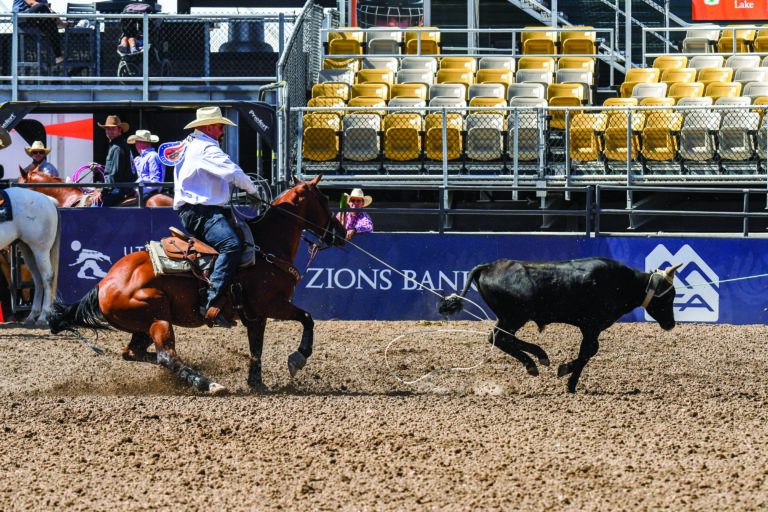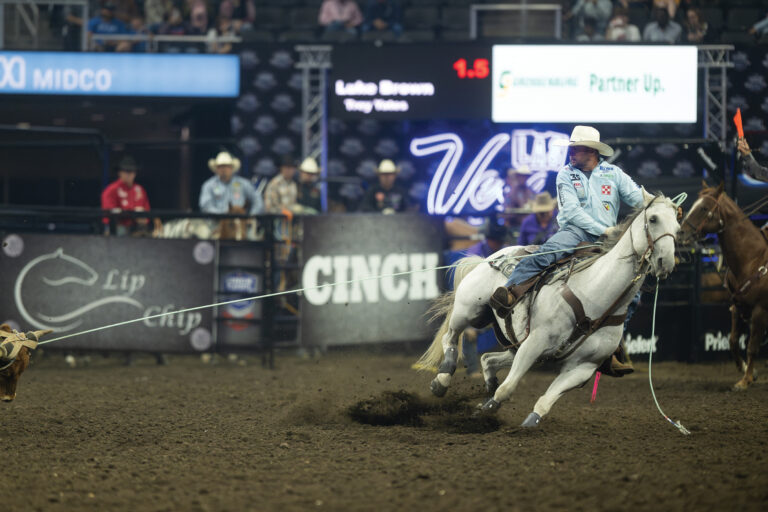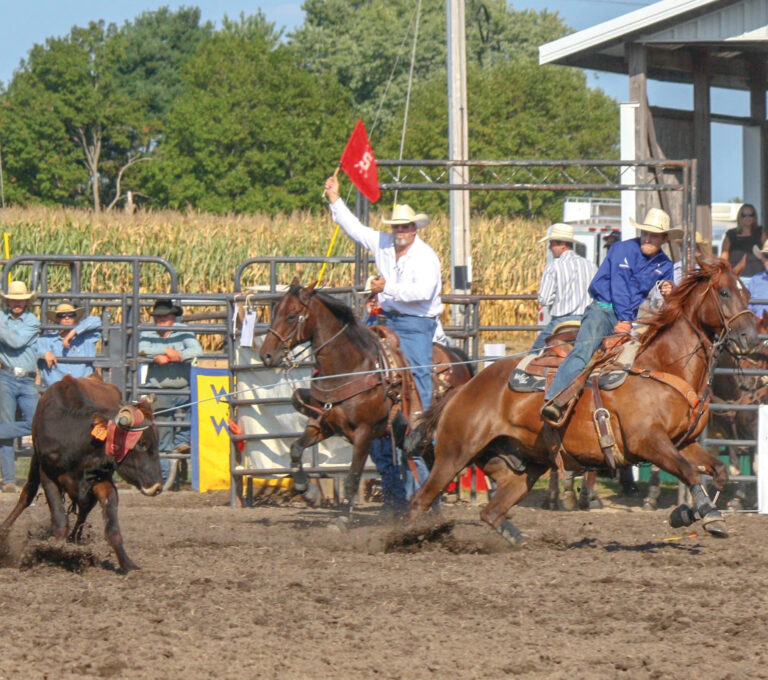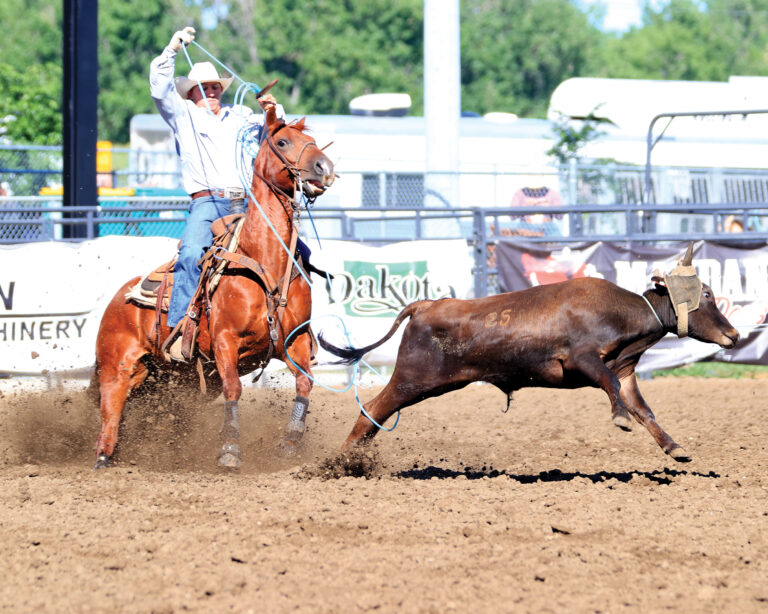Q: You roped at your first NFR in 1963 with R.D. Rutledge. Who were you heading for at the Finals when you won your world championships?
A: I roped with John Bill Rodriguez in 1970 and Ace Berry in 1971.
Q: What do you think about world champion headers and heelers being crowned separately today, and who would have been the world champion heeler when you won the world?
A: They needed to do that for a long time. Headers and heelers are two different animals, and they both deserve recognition—the best header and heeler going should win the world. Had they named two champions when I won it, the world champion heelers would have been Jerold Camarillo in 1970 and John Bill Rodriguez in 1971.
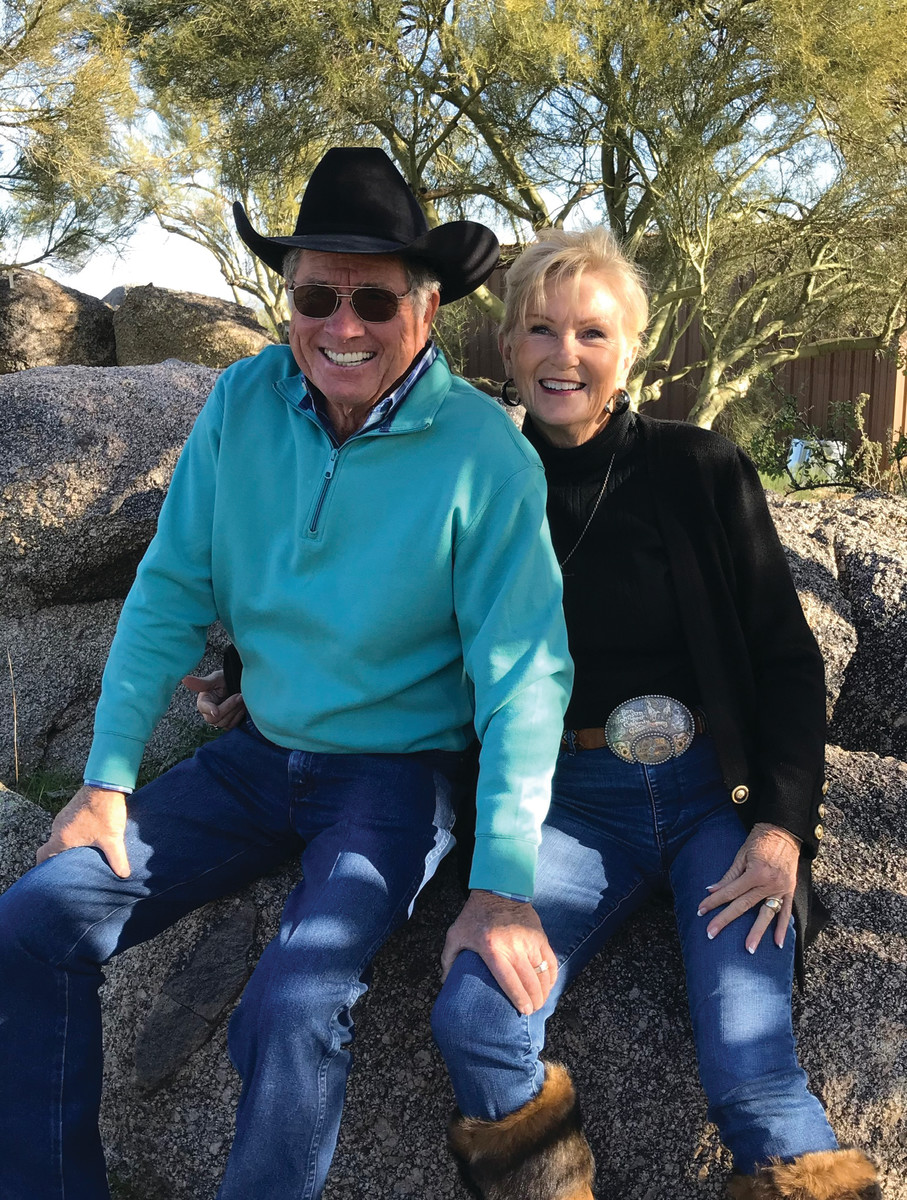
Q: Were any or many of the rodeos go twice when you were rodeoing?
A: At that time, quite a few of the rodeos were go twice. We needed more teams, and that was one way to do it. When it was go twice, I roped with guys like Ace, John Bill, Ken Luman, Joe Glenn and Jimmy Watson.
Q: Team roping was totally different then than it is today, in terms of inclusion, respect and pay, wasn’t it?
A: Absolutely. In the day we were rodeoing, team ropers were the stepchildren of rodeo. We were lucky to even have team roping at a lot of the rodeos. We didn’t have equal money, of course, and the prize money was pretty weak.
Q: Is today’s team roping popularity a surprise to you?
A: It surprises me very much, and it’s a pleasant surprise. I’m so impressed with how many ropers are truly talented today, and how good the horses are now. All the roping schools, videos and training devices have helped people so much. In our day, it was all trial and error.
Q: You won the NFR average with Ace Berry in 1972, the year Ace also won the bareback riding and Phil Lyne won the tie-down roping and bull riding averages. Was that as magical then as it seems now when you were there living it in real time?
A: Yes, the NFR was the high point of our year, even though we didn’t win any money. The year I won the NFR I won 1,200 bucks. And I think I probably hold the record for smallest check ever won at the NFR—I roped with Sonny Cowden one year, and we won $273. People today don’t realize what we had to go through to perpetuate the event. In our day, the heart of team roping was in California and Arizona, at rodeos like Salinas, Santa Maria, San Juan Bautista, Oakdale, Clovis, Santa Barbara and Ventura in California. And we team tied at the rodeos in Arizona, like Tucson, Phoenix and Yuma.
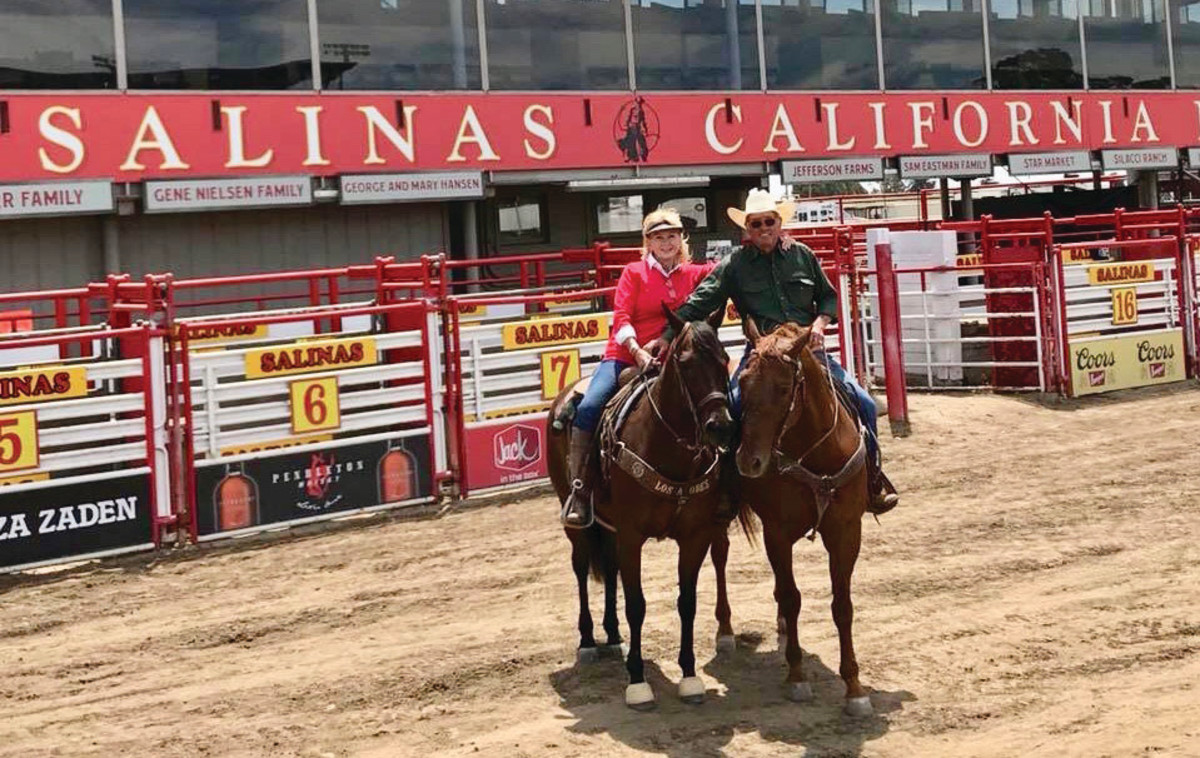
Q: Do you have any regrets from your days on the full-time rodeo trail?
A: No. We had too much fun. I got to go places I’d only heard about as a kid. And I still have friends in all those places today.
Q: You spent the early part of your life between Oklahoma and California. When did you relocate to Arizona and why?
A: I moved to Arizona when I graduated from Cal Poly (with an animal science degree). We used to go to Arizona in the wintertime to the college rodeos, and it was 75-80 degrees. So when I graduated, that’s where I headed. I spent my rodeo days wintering in Arizona, and spending the springs and summers in California.
Q: Now you’re a permanent snowbird. Talk team roping in Arizona today. It’s a pretty prominent land of opportunity, isn’t it?
A: I’ve never seen so many people team rope as there are here in the wintertime. We can pick a roping that fits everything from our pocketbook to our number and how many teams we want to rope against. They’ve tailored these ropings for the consumer, and they’ve done a good job of it. You can rope for 50 bucks or $500 about any day of the week down here in the wintertime. It gets over 110 here in the summer, so we usually rope at 5:30-6 in the morning. I still practice every day at my place. At this point, I have to practice my butt off to keep from backsliding.
Q: What’s your heading number now, how often do you compete these days and where are your favorite spots?
A: I’m a 5.5 now. I’m still competitive as hell, I’m just not very good anymore. I like to rope for quite a bit of money, so Dynamite (in Cave Creek) and Rancho Rio (in Wickenburg) are my two favorite places. There are 20 acres of parking lot at both places, and you can’t find a parking spot. They rope for plenty of money so you can win a lot, and their management is top shelf. You know how it’s going to be done before you get there.
Q: How big a role has roping played in your life?
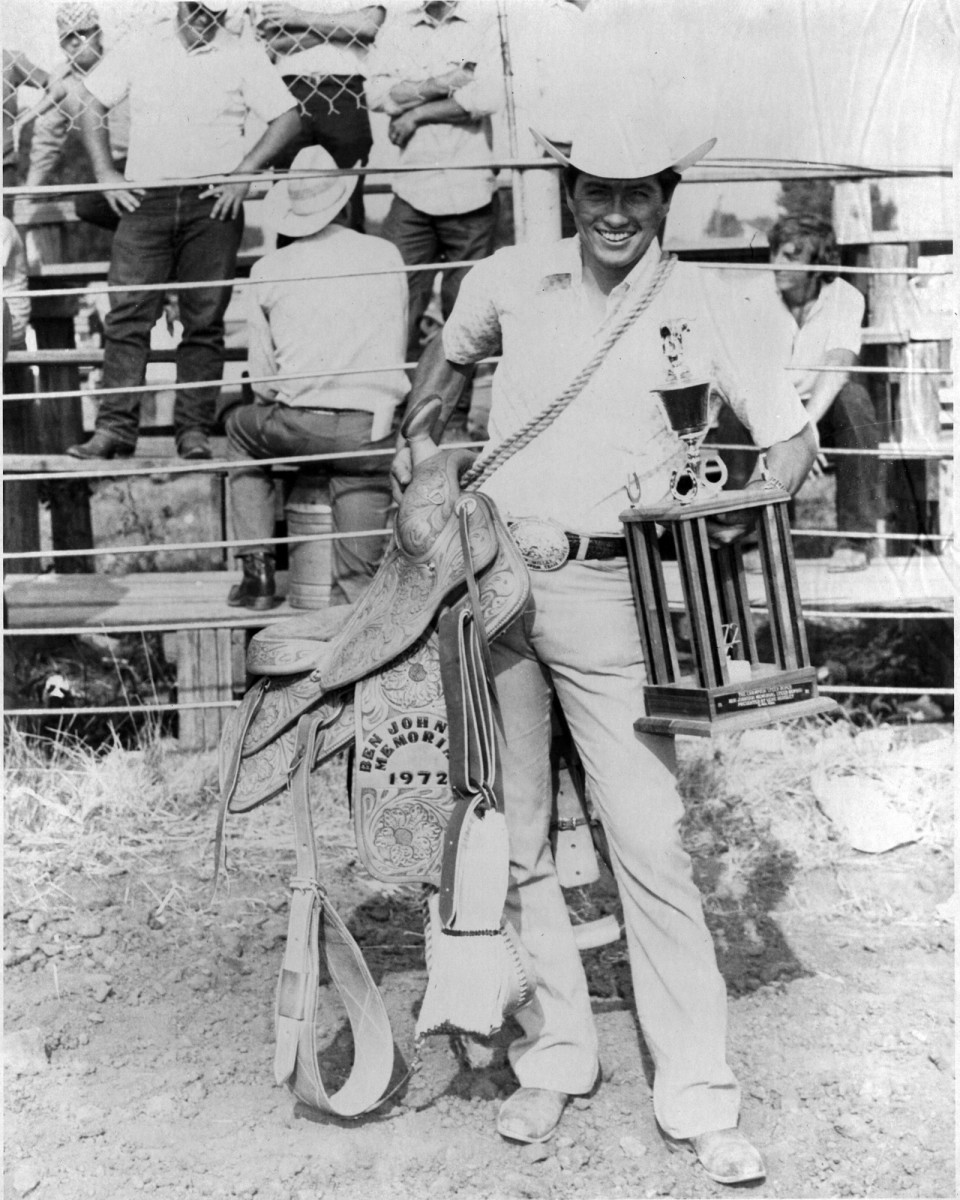
A: Other than my marriage, roping has been the dominating force in my life. It’s how I’ve made my living since I was in college. I’m pretty proud of the fact that there are four generations of world champions in my family. My grandfather, Ben Johnson Sr., was a world champion steer roper in the 1920s. Then my Uncle Ben. Then me. Our son, Trey, was the National High School Rodeo Association champ in 1995, and our daughter, Mary Ann, won team roping titles in the Women’s Professional Rodeo Association in 2006-07.
Q: Who, in your opinion, is the greatest header of all time, and why?
A: I wouldn’t want to pick one. Jimmy Rodriguez would be the first. Jake Barnes. Speed Williams. The kid I see now who looks unbelievable is Kaleb Driggers. They all have an amazing competitive spirit, and have been pretty smart about their business, too




